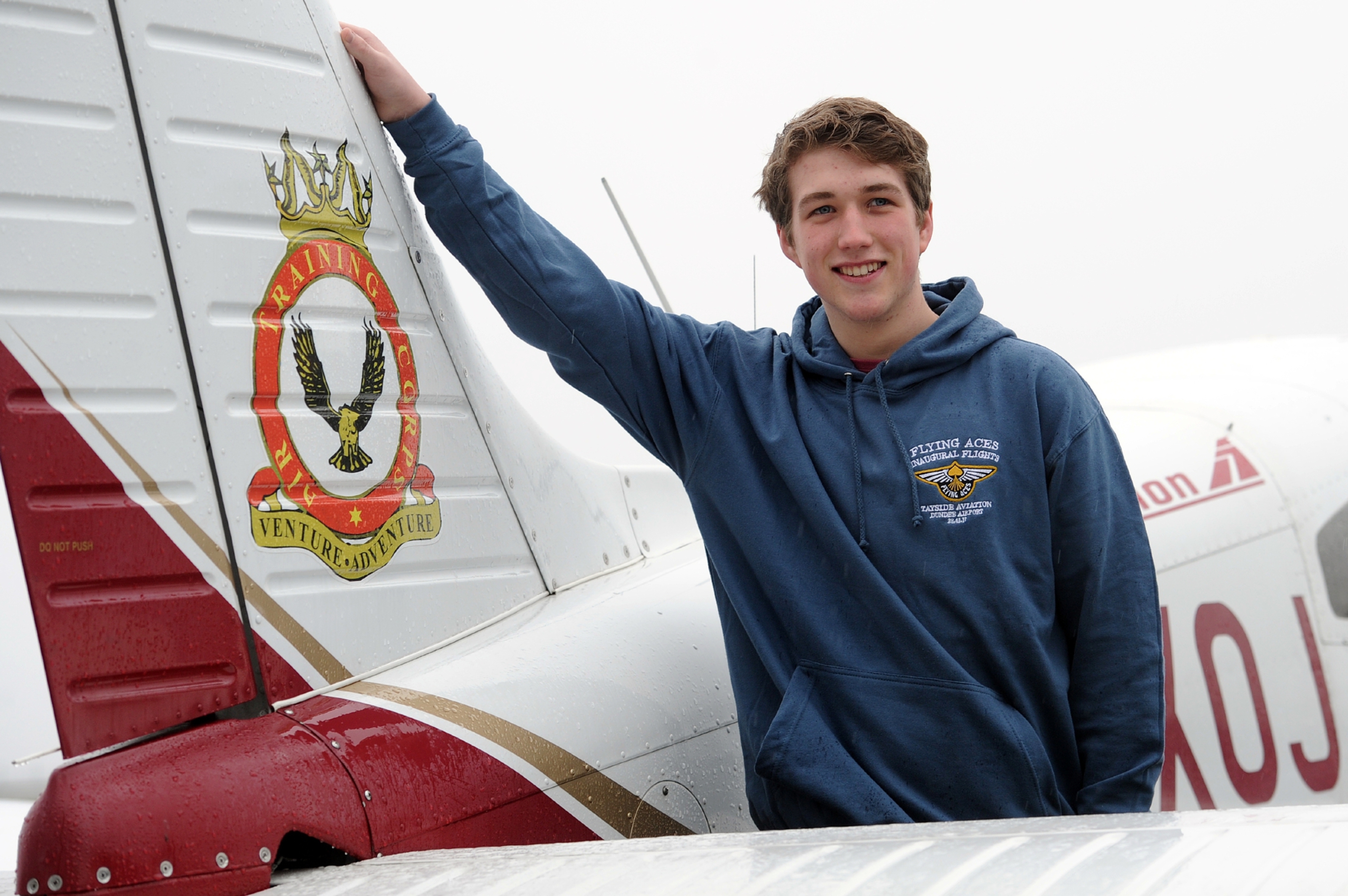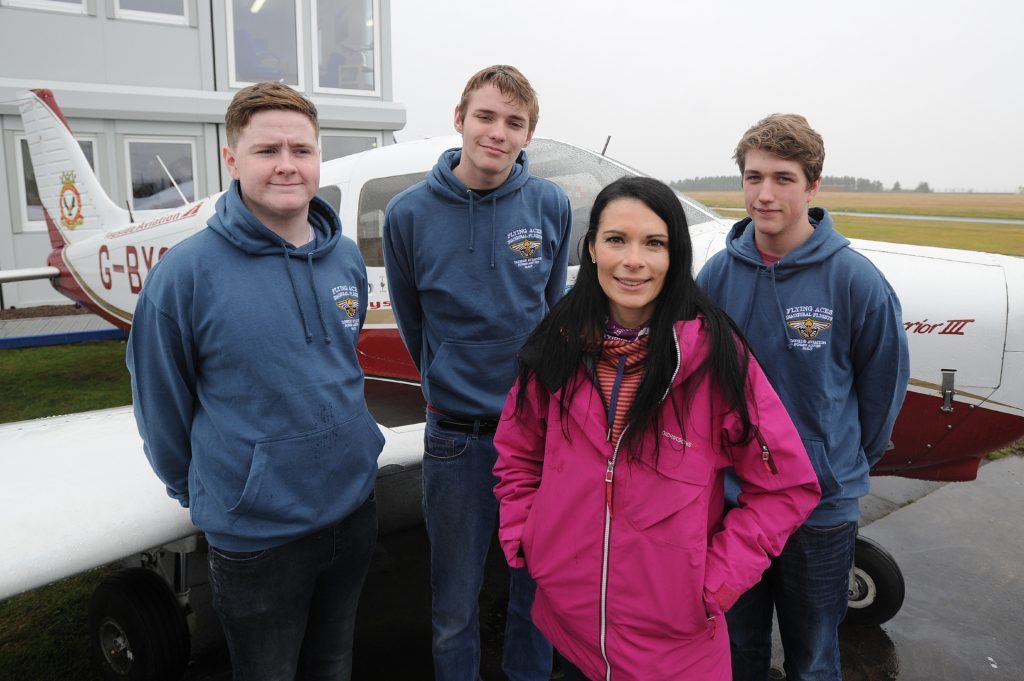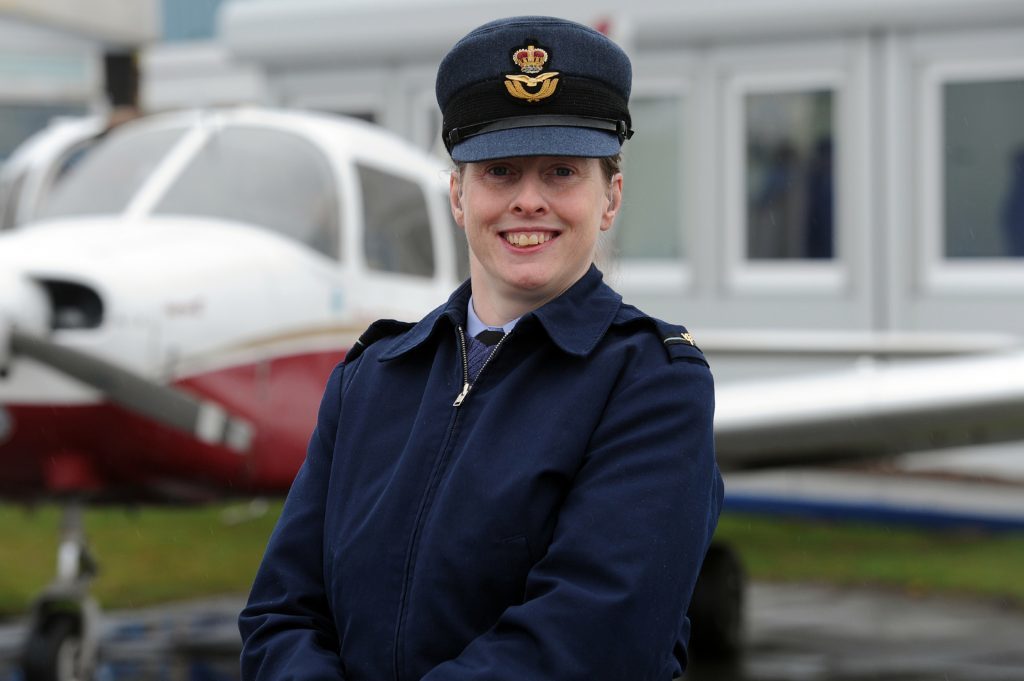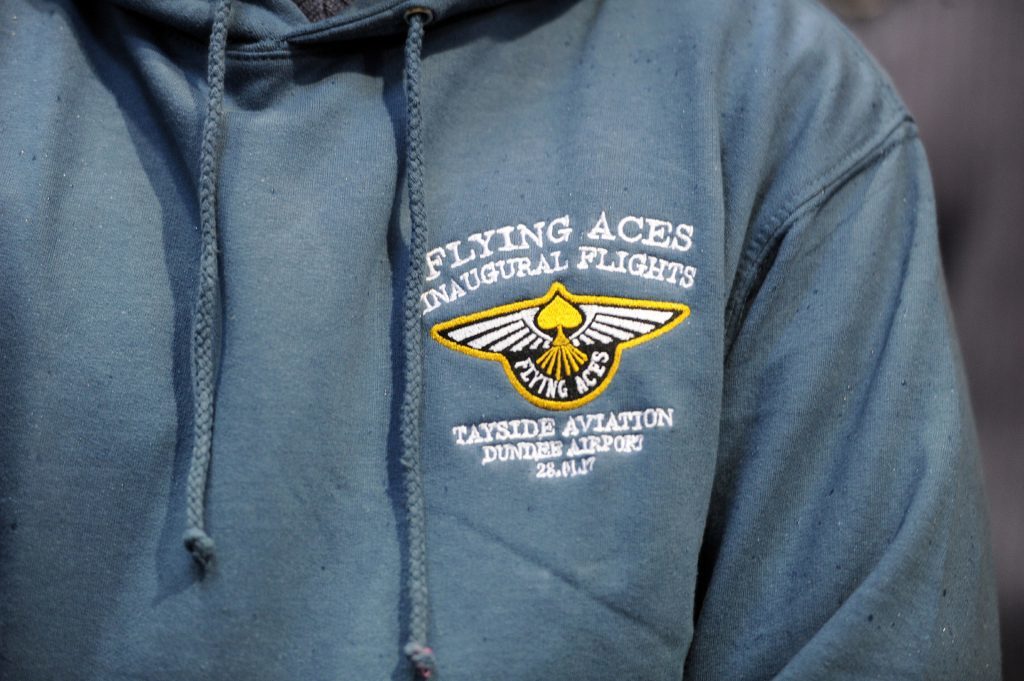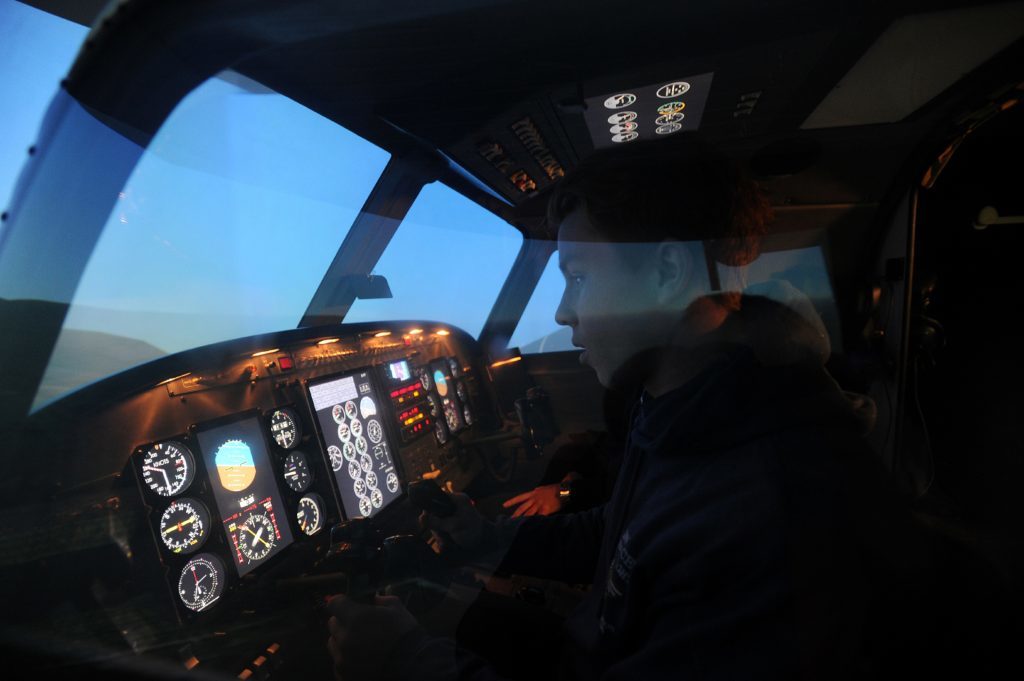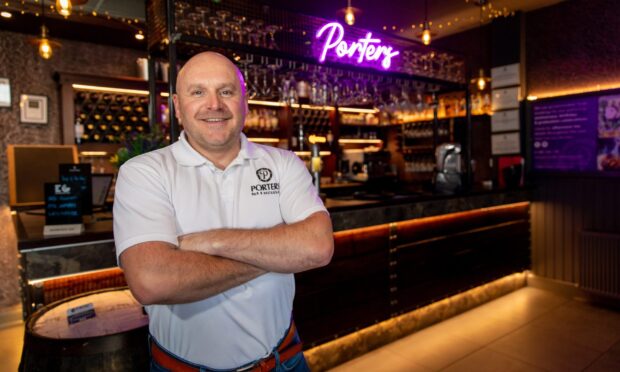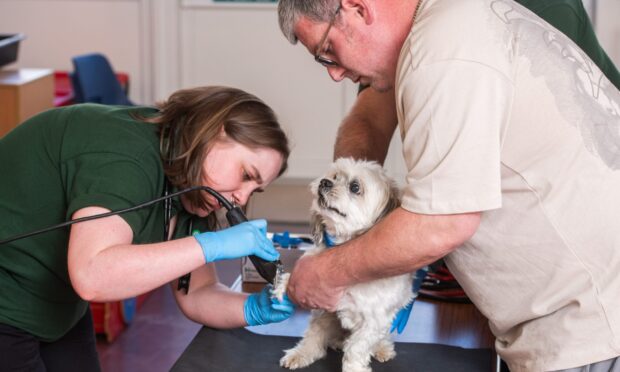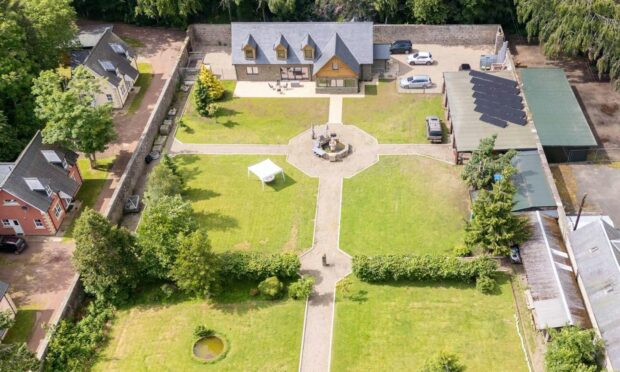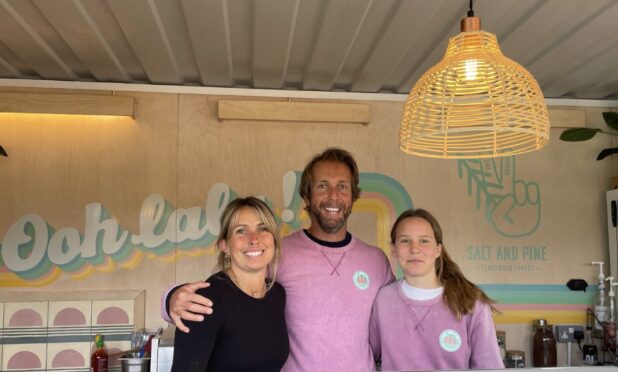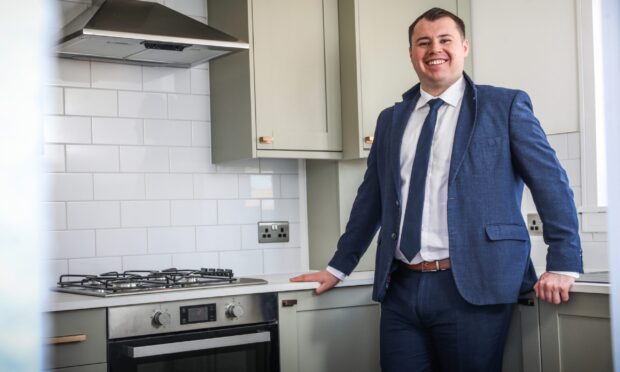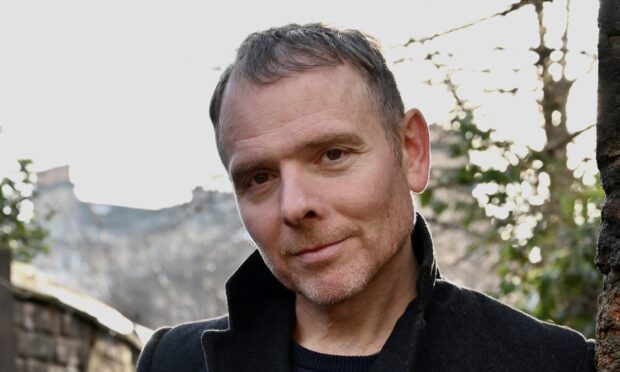A new project designed to help some of Scotland’s most needy young people has just been launched. Gayle finds out more
A small plane rises into the skies high above Dundee, soon becoming a tiny white speck on the horizon.
Sitting in the passenger seat is 17-year-old Daniel Dargue from Killearn in Stirlingshire, and the huge smile on his face says it all.
While the thrill of flying a plane is something most of us can only dream of, an exciting new charity scheme is enabling youngsters like Daniel to take to the skies.
The project, Flying Aces, will benefit some of Scotland’s most needy young people, including those who are disabled and disadvantaged.
The plan is to offer flying experience to 720 cadets in a four-seater Piper PA-28-161 Warrior III aircraft – and the ultimate aim is to allow them to take over the controls and fly the plane themselves.
Daniel, a young carer, says he “instantly” put his name down for Flying Aces, when it launched on January 28.
“I was an air cadet for a while and loved it but my circumstances meant I had to stop,” he says.
“If you can fly a plane, anything seems possible – the world’s your oyster.
“I’ve always wanted to be a pilot, ever since I watched Top Gun, and this is a fantastic opportunity to get into the air.”
Initial training is with Tayside Aviation at Dundee and Fife airports, but it’s hoped Flying Aces will be rolled out to other airfields across Scotland.
Flying scholarships towards private pilot licences will also be offered to selected cadets.
Daniel’s plane hits terra firma just as black clouds are forming and heavy rain is forecast, so any ideas I have about getting airborne myself are put on hold.
Instead, I chat to John Fraser, 16, and Laurence Hepburn, 17, both young carers from Stirling who have their own reasons for getting involved.
“I’ve got a slight fear of flying so it will be amazing to get into the air and conquer it,” laughs Laurence, while John says he can’t wait to be airborne.
I also meet Pauline Gallagher, 40, from Greenock, who has athetoid cerebral palsy and moderate hearing loss. She’s dreamed of being a pilot from the age of four, has been an air cadet since she was 15, and has already flown solo twice, rising to the ranks of flying officer.
“I went on a school trip to Glasgow Airport and remember being transfixed by the aircraft,” she recalls.
“I have a disability and never realised I could get a scholarship to fly so when I found out I was over the moon.
“There are no blue badges up in the air so it’s very liberating – a great equaliser. Flying has helped build my confidence, boosted my social circle and given me great life skills and Flying Aces will give me more flying time.”
Participants are chosen by the RAF Air Cadets’ partners Barnardo’s, Capability Scotland, Young Carers Scotland and Plus Stirling, a charity which supports youngsters with disabilities.
Air cadets will work directly alongside disabled and disadvantaged children, boosting the community element of their efforts toward their Duke of Edinburgh’s Awards .
Regional commandant for RAF Air Cadets in Scotland and Northern Ireland, Group Captain Jim Leggatt OBE, says the intention is that young people will ask themselves: “If I can fly a plane, is there anything I can’t do?”
The project is led and inspired by squadron leader Tom McMorrow who hopes it will boost future job opportunities for air cadets of all backgrounds and open up opportunities for young people, regardless of class, family background or circumstances.
Air experience, he says, could lead to a career as a pilot, in air traffic control, aircraft engineering or in flight operations.
Ross Paterson, Air Officer Scotland and the RAF’s lead representative north of the border, says the scheme will expand the horizons of hundreds of youngsters.
“Many disabled and disadvantaged children would never have thought of flying or joining the air cadets as an option,” he says.
“We want to make Flying Aces as accessible and inclusive as possible and help individuals to achieve full potential.”
info
Funding for the Flying Aces scheme has come from a variety of sources, principally the Robertson Trust and Lord Robert Smith, followed by Mr and Mrs Norman Murray, the Hedley Foundation, and money raised by the Grangemouth Rotary Club.
The Armed Forces Covenant has also contributed £20,000. Flying will be delivered by Tayside Aviation which is the MoD-contracted training provider for air cadet flying scholarships.
